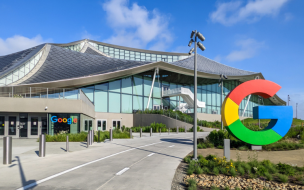We’ve spoken to three MBAs who made an industry switch after their MBA and one who didn’t. Their stories reveal that your motivations for doing an MBA in the first place, as well as how you react to opportunities that crop up during the programme, play a big role roles in switching industries successfully.
Why get an MBA anyway?
INSEAD MBA Carole Ramella founded GFA Consulting that helps firms in West Africa secure investment funds.
Carole, whose parents are Cameroonian, said she discovered the world of private equity in 2005 when she was at insurance, reinsurance and risk management firm Gras Savoye France, as a mergers and acquisitions project manager.
Carole was aware of how difficult it is for small- to medium-sized enterprises in Africa to secure loans from local commercial banks, and it led her to think of ways that private equity could solve the problem. She decided to apply for an MBA so that she could move into private equity and eventually start her own consultancy.
After graduating from INSEAD in 2006, Carole successfully made her switch to the private equity industry. She worked as Vice President for Duff and Phelps, Paris, a financial advisory and investment banking firm, where she was involved in providing valuation and restructuring advisory services to corporate and private equity clients.
Her journey to setting up GFA Consulting Ltd. in Ghana was completed in March 2011. The main challenge for Carole was picking the right location to set up. She considered Johannesburg and Lagos, but was put off by concerns over crime.
She thought Kenya might be difficult to adjust to coming from West Africa, and that Senegal was too small a market for her services. Cote d’Ivoire ruled itself out because of political instability at the time.
Ex-banker and Warwick MBA Shelley McIvor didn’t have to do as much due diligence to make her post-MBA industry switch although she went on to found Goldilocks Ltd, a sustainability consultancy that works with larger companies including Royal Bank of Scotland, Telefonica, Sainsbury’s and Britvic, to design and implement social responsibility programmes.
Shelley started her career with the Lloyds TSB fast track programme aimed at recent university graduates, and remained with Lloyds for three years, moving up quickly to senior strategy manager for the business banking division.
Shelley became more involved in change management processes, and she continued to grow her expertise in the area when she moved to Nationwide Building Society as Project Manager for change management processes.
Unlike Carole, Shelley was not thinking about making an industry switch when she enrolled in business school. Because she had entered senior management at a young age, she wanted to take time to undergo a training programme that fed her leadership abilities.
While on the Warwick MBA Shelley took on a few paid consultancies and her original plan was to join the company she did her MBA project with, but over the course of the programme she realized she wanted to carry on working independently and so went solo.
Jeffrey Pi made the switch from film making in Canada to working with international pharmaceutical firm Bayer in China after completing an MBA with China Europe International Business School (CEIBS).
Jeff was born and raised in Vancouver and earned his undergraduate degree in Economics at Simon Fraser University. He started his career in the media and advertising industry, directing and producing commercials, short films and documentaries but decided to head to China to get an MBA. He now works as the regional chief administrative office at Bayer’s Chengdu office.
Jeff's MBA was a chance for him to move from freelance media into a more corporate environment. Being in China was important for him too, because he wanted to be part of the incredible growth there.
He joined Bayer because he wanted to work in a large multinational in an emerging economy. It's an unusual transition for someone from a creative background, but Jeff is good at guiding groups to come up with ideas that can steer the company forward and at Bayer, he leads an innovation programme. The MBA was important because it helped him get used to working in a structured environment.
A case of not switching
Ralph Yew graduated from Australia's Edith Cowan University MBA programme in 2011 and has remained in the railway business.
Prior to joining the programme, Ralph worked as a business development manager for rail transport company Ansaldo STS Malaysia, where he was part of a bid team for the Malaysia South double track electrification system for signalling and communications.
This role piqued his interest in the railway industry. During his MBA he started working for consulting firm Frost and Sullivan in the rail transportation business. He stayed with the company for two years and at the end of the MBA didn’t see the point in moving to a different sector.
He now heads business development for George Kent, a Malaysian engineering company, and he's currently running a rail project in the Malaysian market. “I would very much like to remain in the rail sector considering the boom in rail infrastructure in Malaysia and various parts of Asia”, he said.
Striking the right balance between aspiration and opportunity
Deciding whether or not to make a post-MBA industry switch and pulling one off successfully seems to be a matter of balancing new opportunities with both old and new skills, and your personal aspirations (whew!).
Jeff Pi said his MBA switch happened because he kept an open mind. Jeff knew he wanted to make a switch but wasn’t sure of the exact area so he took as many modules as he could in order to see what he liked and what he had an instant affinity for.
He also entered as many business competitions as his time allowed. He won a marketing competition and part of the prize was an internship with Bayer. He did well and his career rocketed from there.
Ralph Yew didn't want to switch because his interest in his existing industry grew.
For Shelley McIvor, setting up her own company was a way to gain the independence that comes with working for oneself and having a career that fits strongly with her values. “I look at my career now and I’m pleased with it. I would be proud to say this is what I’ve done with my life”, she said.
Carole Ramella's successful switch was also strongly influenced by her personal motivations and exploiting opportunities offered by the MBA, but she had to wait for the right time.
Although having an MBA allowed her to quickly move into private equity, it took her some years to reach the final leg of her journey and start her own consultancy. She’s now working with recognised brands in West Africa, who are looking to raise between US$5 million and US$10 million.
Jeff’s advice for those who want to switch industry via an MBA is to consider programmes in emerging markets: “These markets are growing fast but they are short on talent. It’s not easy to make an impact unless you are ready to work but it’s easier to get the opportunity to try”, he said.
Carole emphasizes having a clear, feasible vision and not compromising on it. She was willing to wait until she found the perfect time and place for her business: “There is so much space for companies like mine. If you explain well what you’re doing and you do it well, your reputation can be built at an incredible speed”
Shelley’s advice for MBAs who want to make an industry switch is to clearly map out how the skills you have will support the role you desire: “MBAs assume the degree is a ticket to an automatic promotion but this may not be the case if you don’t have the required skill set. An MBA is really about investing in yourself rather than ticking a box”, she said.
RECAPTHA :
a5
42
9b
9c







